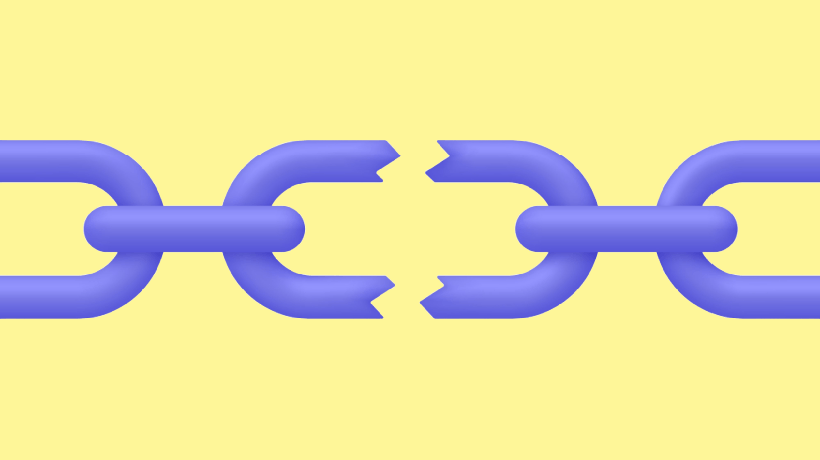#upskilling
#upskilling
[ follow ]
#ai #workforce-development #learning-and-development #career-development #generative-ai #ai-adoption
fromLondon Business News | Londonlovesbusiness.com
22 hours agoOrnella Mkrtchyan on how opportunity flows beyond geography - London Business News | Londonlovesbusiness.com
The scale of this shift is striking. According to the World Economic Forum , approximately 78 million new job opportunities will emerge by 2030 due to technological change, but urgent upskilling is needed to ensure workforces are ready. Meanwhile, Reuters reports that over three billion people globally are still offline, highlighting the persistent gaps in access to digital tools and knowledge. In the UK alone, 7.9 million adults lack basic digital skills, while 21 million struggle with essential digital tasks required at work.
Online learning
fromEntrepreneur
2 days agoWhy Entrepreneurs Are Choosing StackSkills Unlimited at $19.97
Upskilling is no longer optional for entrepreneurs-but paying monthly just to stay current adds up fast. StackSkills Unlimited offers a simpler alternative. For $19.97 (regularly $600), you get lifetime access to a broad library of more than 1,000 practical, business-ready courses. It's a one-time purchase designed for people who want flexibility, control, and long-term value. The deal ends Feb. 15 at 11:59 p.m. PT.
Online learning
Artificial intelligence
fromSocial Media Explorer
4 days agoHow AI is Changing the Hiring Landscape for Good - Social Media Explorer
AI will create millions of jobs by augmenting human capabilities, easing tedious tasks, improving hiring, enabling upskilling, higher pay, work-life balance, and employee loyalty.
fromeLearning Industry
3 weeks agoWhat Is Workplace Learning? Your 2026 Guide
In a constantly changing workplace shaped by evolving technology and demanding customers, learning and upskilling are no longer optional; they are essential. Therefore, employees should be adaptable to shifting job requirements to stay relevant and competitive. Workplace learning today is more than just on-the-job training. It has become more dynamic. Bite-sized study modules, mobile-first lessons, and AI-based personalized learning have replaced traditional, classroom-style training sessions, making learning more accessible and convenient for on-the-go learners.
Online learning
Higher education
fromTechCrunch
1 month agoTade Oyerinde and Teddy Solomon talk about building engaged audiences at TechCrunch Disrupt | TechCrunch
Campus and Fizz scaled by offering targeted, accessible education and social experiences, leveraging grants, investor backing, and live online classes to drive community and upskilling.
Careers
fromFortune
1 month agoCisco's top exec and Amazon's Andy Jassy share the same hiring red flag, and it's something that can't be taught | Fortune
Positive attitude, engagement, and eagerness to learn often outweigh resume skills for promotion, especially early career; trainable skills can follow with development.
Artificial intelligence
fromBusiness Insider
1 month agoBlackstone's CTO explains how he uses his 35-minute subway ride to stay sharp and upskill
John Stecher prioritizes continuous upskilling, using daily subway reading of cross-industry tech research and weekend experimentation to keep Blackstone competitive.
fromFast Company
1 month agoForget job hunting. Gen Z is 'growth hunting'
When I talk with business leaders about Gen Z, the same frustration often bubbles up: "They won't stay." It's said with a kind of bewildered shrug, as if the younger generation has suddenly rewritten the rules out of thin air. I heard it again last week during a radio segment I did about generational dynamics at work. The host asked why Gen Z feels so comfortable moving on so quickly.
Business
fromeLearning Industry
1 month agoUnderstanding The Learning Curve: Why It Matters In Corporate Training And L&D Strategies
The learning curve is a graph depicting the rate of acquiring new knowledge, skills, or competencies of a learner over time. It shows the gradual improvement of proficiency through repeated exposure and practice. Corporate training using the learning curve allows us to figure out: The duration needed by learners in order to reach competency. The level of steepness of the learning progression. How to design training to obtain mastery in less time.
Education
Artificial intelligence
fromFortune
1 month agoJamie Dimon says soft skills like emotional intelligence and communication are vital as AI eliminates roles | Fortune
Soft skills—critical thinking, emotional intelligence, communication, and adaptability—will become increasingly essential as AI automates tasks and eliminates some jobs.
fromBusiness Insider
2 months agoGoogle engineer said landing an AI role took a year and daily studying
When I started off as a software engineer, my dad, who also works in tech, kept telling me to get into AI. I brushed it offbecause I was just starting off my engineering career, and no one was really talking about AI in 2019, unless they were getting a PhD. Then in 2023, the tech industry changed and everyone started going into AI. That led me to want to start pursuing AI as a job, and alsocreating content about it.
Artificial intelligence
fromPR Daily
2 months agoThe skills you need in PR are changing. Here's how to adapt. - PR Daily
"Since 2015, about 25% of essential skills have changed," Heath said. "By 2023, 78% of the skills in the same roles evolved. Even if you're sitting in the same team, in the same job, 70% of what you know today might not be relevant tomorrow." For comms pros, this means past playbooks no longer guarantee success. "Twenty years ago, we had comfort in knowing exactly what to do. Today, we're operating in a world of uncertainty," Heath said.
Marketing
Online learning
fromeLearning Industry
2 months agoFrom Access To Aspiration: Hyperlocal And Hybrid Mobile Learning Beyond The Classroom
Smartphone-based mobile learning transforms access to education and upskilling in India's smaller cities, enabling microlearning, retraining, and participation in the digital economy.
fromForbes
3 months ago17 Free Google Career Certificates For $100,000+ Jobs In 2026
These courses enable you to learn specific high-income skills that are in strong demand in the job market and business world, such as: Digital marketing (digital marketing manager's average salary is $115,281) Web development (senior web developer's average salary is $117,821) App development (mobile app developer's average salary is $105,982) Google Analytics (product analyst's average salary is $106,532) Gen AI (Gen AI skills boost the salary potential of any role by up to 47%)
Online learning
fromBusiness Insider
3 months agoBCG says only 5% of companies are deriving value from AI. Here are the industries it says are getting it right.
According to a new report from Boston Consulting Group, only 5% of companies in its2025 study of more than 1,250 global firms are seeing real returns on AI. Meanwhile, 60% of companies have seen little to no benefit, reporting only minimal increases in revenue and cost savings despite making substantial investments. BCG said that industries like software, telecommunications, and fintech have the highest levels of "AI maturity," which the firm defines as "the ability to create value at scale."
Artificial intelligence
fromIT Pro
3 months agoIT and business pros call for more tech training
With the tech skills gap showing no signs of closing, very few IT and business professionals believe they're getting enough support for tech learning. A survey of 1,500 tech executives, IT professionals, and business professionals in the US, UK, and India from tech workforce development firm Pluralsight has revealed that while 95% say building a culture of learning is a priority at their organization, the same number believe they need more support to learn tech skills.
Online learning
Artificial intelligence
fromeLearning Industry
4 months agoAI-Powered Learning: How An Intelligent LMS Transforms Training Outcomes
AI-powered LMS platforms personalize content, adapt to learner behavior, predict outcomes, and improve engagement and skills development to drive productivity and competitive advantage.
fromSocial Media Today
4 months agoLinkedIn Launches Career Hub to Help Maximize Career Opportunities
Trending Skills insights will help organizations understand the skills that their employees have, so they can identify gaps, and track emerging trends across industries. "It combines internal data from employee LinkedIn profiles with external benchmarks to support smarter learning and talent decisions." help connect employees with internal career opportunities. LinkedIn will highlight the skills needed for these roles and suggests relevant courses users can take to enhance their skills.
Online learning
fromTechCrunch
4 months agoMercor CEO explains how AI affects who gets hired next | TechCrunch
The future of work is no longer on the horizon - it's being redefined in real time. On the AI StageatTechCrunch Disrupt 2025, Mercor co-founder and CEO Brendan Foody will break down how artificial intelligence is transforming not just how we work, but also who gets to work in the first place. From talent access to hiring pipelines to the rise of AI-augmented teams, it's a conversation that could reshape the way you think about your next hire.
Artificial intelligence
Online learning
fromeLearning Industry
4 months agoHow Learning And Development Can Support Employees During Career Transitions
L&D should deliver timely, personalized upskilling and emotional support to enable smooth career transitions, retain talent, and preserve institutional knowledge amid rapid workplace change.
fromeLearning Industry
4 months agoWorkflow Automation In L&D: A Game-Changer For Remote Workforces
The workplace has undergone a dramatic transformation in the last few years. What began as a temporary response to global disruptions has now become a long-term operating model for many organizations: remote and hybrid work. With employees scattered across locations, Learning and Development (L&D) functions have taken center stage. Upskilling and reskilling employees is no longer optional-it's vital for productivity, adaptability, and long-term success.
Online learning
fromeLearning Industry
4 months agoTop Upskilling And Reskilling Initiatives Using Your LMS
In modern work environments, it is vital that employers-and individual employees-adapt to keep up with the speed of change. Often, this means being able to develop skills continuously. While that might sound like the workplace learning equivalent of a hamster wheel, it doesn't have to feel so much like hard work. The technology within a modern LMS creates an array of opportunities to deliver upskilling and reskilling initiatives.
Online learning
fromLondon Business News | Londonlovesbusiness.com
4 months agoSMEs double down on upskilling as they adapt to a shifting labour market - London Business News | Londonlovesbusiness.com
When asked about their plans for the rest of 2025, just under half (48%) of SMEs leaders revealed they are looking to upskill their current team, by far the most popular answer. This compares to 29% who plan on expanding their leadership team and a quarter (25%) who plan to hire new staff. This strategic focus on developing internal talent reflects wider concerns about recruitment challenges.
UK news
fromeLearning Industry
4 months agoWhy Continuous Learning Is Essential For The Future Of Work
For L&D leaders, the question is not whether employees need to keep learning but how to create an environment where learning never stops. Lifelong learning in the workplace has shifted from a nice-to-have initiative to a competitive advantage that determines the survival and growth of a business. Modern learning tools, such as AI-powered LMSs, are making this easier, enabling employees to learn at their own pace and stay updated.
Online learning
Online learning
fromLondon Business News | Londonlovesbusiness.com
5 months agoUpskill from anywhere: How e-learning platforms are empowering careers - London Business News | Londonlovesbusiness.com
Skills are the primary currency in the modern economy; e-learning democratizes upskilling by providing affordable, flexible, globally accessible training for long-term employability.
fromwww.cnbc.com
5 months agoThe top 10 jobs offering remote, part-time work in 2025, says new report
According to a recent FlexJobs survey, the top three industries offering remote, part-time jobs are education and training; medical and health; and project management. Taking on a part-time role is a great way to upskill and explore your career options, says FlexJobs career expert Toni Frana. "If you want to build skills, or if you're interested in trying something new, a part-time job can really give you the opportunity to try that without fully committing to a full-time role," she says.
Artificial intelligence
fromFortune
5 months agoOver half of professionals are so annoyed by AI trainings they say it feels like a second job, LinkedIn survey finds
AI training requirements increasingly burden employees, functioning like a second job and driving stress, longer hours, burnout, and insecurity about their AI skills.
fromForbes
5 months ago20 Courses & Certificates To Learn High-Income Skills In 2 Hours
And yet, between several meetings, projects, and your personal priorities (including, of course, the binge-watching), professional development and career growth often sinks to the bottom of your to-do list. But you cannot afford to let your upskilling endeavors suffer. In 2025, high-income skills are the very currency of your career success. You could afford to switch off the TV for just a couple hours a week.
Information security
fromeLearning Industry
5 months agoSkills-First Learning: How Leaders Can Keep Pace With Change
In boardrooms worldwide, one theme dominates: how can organizations keep pace with relentless technological and market change? At Davos and beyond, CEOs are calling for skills-first, agile learning approaches-programs designed to build workforce resilience while delivering measurable business outcomes. This shift signals a departure from traditional training models. Instead of focusing on roles or credentials, the emphasis is on skills: what employees can actually do today, and what they must learn quickly to thrive tomorrow.
Education
fromThe Drum
6 months ago9 CMOs share their biggest lessons of 2025 so far and how they're shaping their strategies
"Nothing feels predictable anymore. I think we've moved from a VUCA world to a TUNA world; it's turbulent, it's uncertain, it's novel - and the biggest is ambiguous," said Rupen Desai, CMO and venture partner at Una Terra.
Marketing
[ Load more ]





























